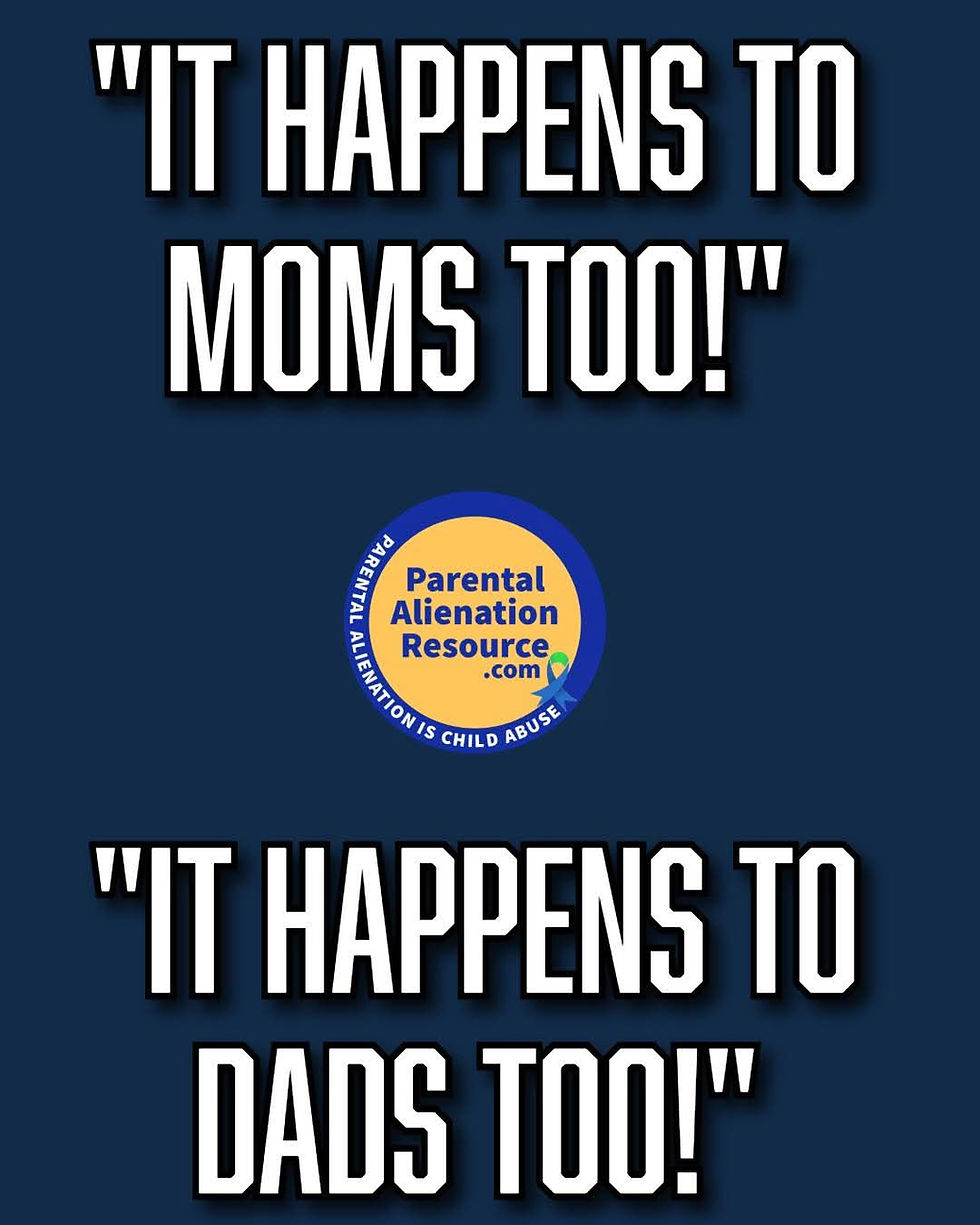What is Parental Alienation?
- Parental Alienation Resource

- Jun 21, 2023
- 1 min read

Parental alienation is a term used to describe a situation where one parent, consciously or unconsciously, manipulates a child to turn against the other parent, creating a strained or estranged relationship. It typically occurs in the context of high-conflict divorces or separations, where one parent tries to negatively influence the child's perception of the other parent.
Parental alienation can have serious emotional and psychological effects on the child, as it disrupts their sense of security, trust, and their relationship with the targeted parent. The child may be coerced or encouraged to reject the other parent, sometimes without valid reasons, leading to long-lasting damage in their relationship.
Addressing parental alienation requires a comprehensive approach, involving counseling or therapy for both the child and the parents. It's important to prioritize the child's well-being and promote healthy co-parenting strategies that focus on the child's best interests. Legal interventions may also be necessary in severe cases to protect the child's rights and ensure a healthy parent-child relationship.
If you are experiencing or witnessing parental alienation, it is advisable to seek professional guidance from a family therapist, counselor, or legal expert who specializes in family law and child custody matters.









Comments